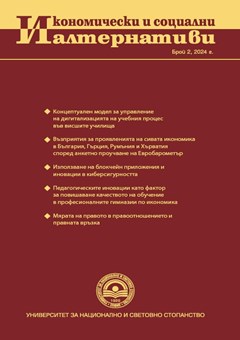Maintaining Sustainable Public Finances: The Role of Fiscal Consolidation
Authors: Uran Radoniqi, Abdylmenaf Bexheti
Abstract
Fiscal consolidation became a very essential process in policymakers’ circles and also in academia, especially in the aftermath of the 2008 crisis and it seems that the necessity of fiscal consolidation is back with the post-COVID situation and also with the crisis caused by the war in Ukraine. In literature, fiscal consolidation processes most of the time deal with the main aim to reduce public debt, but do we need fiscal consolidation just in times when the situation with public debt tends to get out of control? Fiscal consolidation can be justified not only in high-level debt situations when there is not enough fiscal space. Some countries, although they have moderate public debt levels, still need to implement fiscal consolidation to reform, structure, and sustain public finances. Such conditions are present in Kosovo, a country in the Western Balkans 6 and this study aims to present the role of the fiscal consolidation process for the sustainability of public finances from the perspective of Kosovo. Using the VAR model and impulse response functions, this study, through analysis at disaggregated levels for major groups of revenues and expenses, will propose an accurate fiscal consolidation process for Kosovo. The study concludes that in the case of Kosovo, in time of fiscal consolidation there is room for interventions in direct taxes, indirect taxes, and transfers & subventions expenses.

